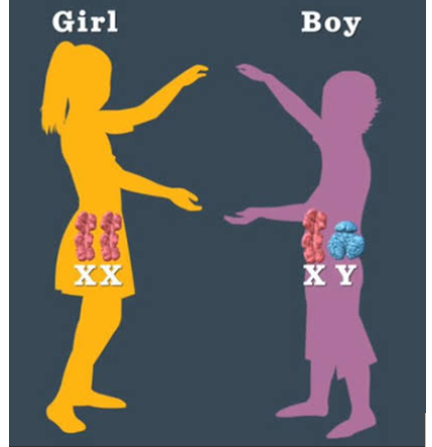Y chromosome is disappearing
30-Aug-2024The study shows that mammals can evolve alternative sex-determining mechanisms when the Y chromosome is lost.

Biologists have shed light on how the Y chromosome, one of the two sex chromosomes in humans, is on the cusp of disappearing. The complete disappearance of this chromosome would mean the end of the male offspring in the future.
However, there is some hope.
A new study published in the Proceedings of the National Academy of Science has revealed that the spiny rat, a rodent species native to Japan, has evolved a new male-determining gene as its Y chromosome disappeared.
This discovery offers hope for human survival as our own Y chromosome faces potential extinction in the coming millions of years.
According to Jennifer A Marshall Graves, a distinguished Professor of Genetics and Vice Chancellor's Fellow, the human Y chromosome is running out of time. In the last 300 million years, it has lost 1393 of its original 1438 genes, and at this rate it will lose the last 45 in a mere 10 million years.
The human Y chromosome, which contains the SRY gene responsible for male development, has been degenerating over time.
Scientists estimate that at the current rate of gene loss, the Y chromosome could vanish entirely within 11 million years. This prospect has raised concerns about the future of human reproduction and species survival.
The spiny rat's adaptation provides a potential solution.
Researchers led by Asato Kuroiwa at Hokkaido University found that most Y chromosome genes in spiny rats had relocated to other chromosomes.
Crucially, they identified a small DNA duplication near the SOX9 gene on chromosome 3, present in all males but absent in females. This duplication appears to activate SOX9, taking over the role of the missing SRY gene in male development.
The study shows that mammals can evolve alternative sex-determining mechanisms when the Y chromosome is lost. This finding is particularly significant given that another rodent species, the mole vole, has also lost its Y chromosome and survived.
While the potential loss of the human Y chromosome remains a concern, this research suggests that our species could potentially evolve a new sex-determining gene, ensuring the continuation of male offspring production.
However, scientists caution that such evolutionary changes could lead to the emergence of multiple sex-determining systems in different human populations, potentially resulting in the formation of new species.







